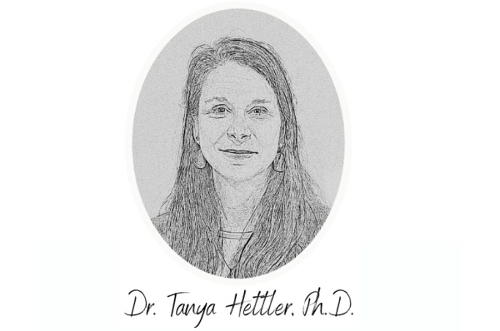
The Vision Coalition is Failing Delaware Students
By Tanya Hettler, Ph.D.
Center for Education Policy
May 4, 2025
Delaware is in the middle of a "literacy crisis" as both Delaware's Governor Meyer and Education Secretary Marten have acknowledged. Despite this, the Vision Coalition-an influential group that has guided education policy for nearly two decades-continues to prioritize "student-centered learning" over proven, evidence-based instruction. As reading and math scores remain low across the state, it's time to take a closer look at who is shaping Delaware's education agenda-and what they are prioritizing.
According to the National Institute for Direct Instruction, Direct Instruction (DI) "emphasizes well-developed and carefully planned lessons designed around small learning increments and clearly defined and prescribed teaching tasks. It is based on the theory that clear instruction eliminating misinterpretations can greatly improve and accelerate learning."
Research shows that DI is the most effective teaching model overall and is especially beneficial for at-risk students.
The Vision Coalition's Influence
The Vision Coalition is an influential group in Delaware with a leadership team consisting of K-12 school and college leaders, representatives from private companies and nonprofits, school board members, the president of the Delaware teachers union, and government leaders including the Delaware Secretary of Education. This group has existed for 19 years and is largely funded by the Rodel Foundation.
Every 10 years the group produces a 10-year plan. The newly released plan is titled Student Equity and Excellence 2035 and contains a set of policy recommendations spread across six key issue areas-early care and education, student-centered learning, student support, postsecondary success, educators, and student-centered funding.
A Misplaced Focus on Student-Centered Learning
At the heart of the plan is the Vision Coalition's core tenet of "student-centered learning" which it defines as follows:
"Every student, beginning at birth, has a right to a comprehensive, equitable education personalized to their unique needs, strengths, and talents. Designed with the capacity to give space for each child's interests, passions, dreams, skills, and needs, education centers and empowers them as active participants in their learning."
This sounds ideal-but in practice, it fails the very students it claims to help. As Houston Independent School District's Superintendent Mike Miles, who is working to turn around one of the nation's largest underperforming districts, has said the problem with 'student-centric' learning is that "students cannot guide their own learning when they cannot read" nor can they "just do what they're interested in when they're way behind in math."
Delaware's Science of Reading Mandates
In contrast, Delaware law has taken an important step toward evidence-based reform. The state legislature has passed four laws (SB 133, SS 1 for SB 4, HB 304, and SS 1 for SB 252) that require the implementation of the Science of Reading in K-12 schools.
According to the Delaware Department of Education:
"The State of Delaware defines the Science of Reading as a vast, interdisciplinary body of scientifically-based research about reading and issues related to reading and writing. For full definition see The Reading League." (sic, emphasis in original)
The Reading League's Science of Reading Defining Guide adds:
"This research has been conducted over the last five decades across the world, and it is derived from thousands of studies conducted in multiple languages. The science of reading has culminated in a preponderance of evidence to inform how proficient reading and writing develop; why some have difficulty; and how we can most effectively assess and teach and, therefore, improve student outcomes through prevention of and intervention for reading difficulties."
In essence, the "Science of Reading" supports direct and explicit literacy instruction-a model that runs counter to the Vision Coalition's emphasis on individualized, student-led approaches.
The Vision Coalition's North Star: Missing the Mark
The Vision Coalition's plan includes a guiding vision-its "North Star"--which focuses on critical thinking, wellbeing, communication, self-determination and community commitment.
Figure 1: The Vision Coalition's "North Star"
(Graphic source: Vision Coalition of Delaware, Student Equity and Excellence 2035 Plan)
Notably, the North Star omits core academic knowledge. The plan mentions it only in passing, stating it should "complement the durable, foundational skills that employers need most."
The framework reverses the proper order. Core academic knowledge is the foundation on which skills like communication and critical thinking must be built.
Research has found that it does not work to teach topics such as critical thinking or communication without first equipping students with factual knowledge to think or communicate about.
Even more concerning, the plan does not prioritize literacy, despite existing state mandates and widespread acknowledgement of Delaware's reading crisis.
A Literacy Crisis Worsens
When both the governor and education secretary have stated that Delaware is in the middle of a "literacy crisis," it is troubling that the state's most influential education coalition is not aligning its goals with improving reading outcomes. Instead, the Vision Coalition continues to promote its student-centered learning model, ignoring the direction set by Delaware law.
According to the coalition's website, more than 75% of its policy recommendations have been advanced. Given the current academic outcomes, that track record should raise serious concerns.
Put Literacy First
Despite two decades of influence, none of the coalition's stated goals directly address literacy or mathematics. Today, only 41% of Delaware students can read proficiently and only 31% can do math at grade level. In fact, the number of students able to read or do math at grade level has declined significantly over the 20-year period of the Vision Coalition's existence.
As the Caesar Rodney Institute has documented, the Science of Reading-direct, explicit instruction based on decades of evidence-is the most effective path to improving literacy outcomes. Delaware's students deserve an effective education, especially for the neediest students-not one that simply makes equity one of its talking points.